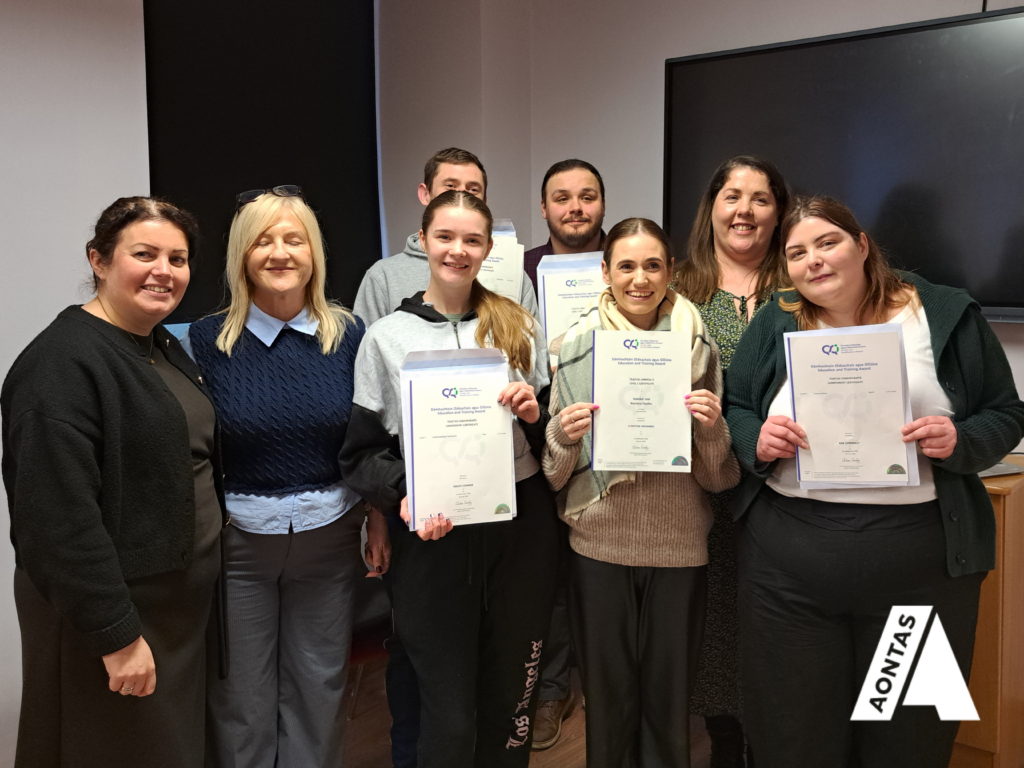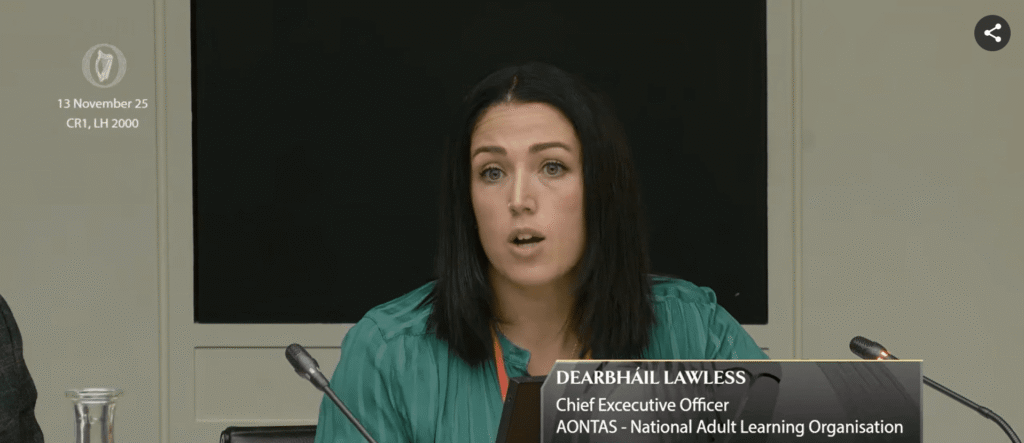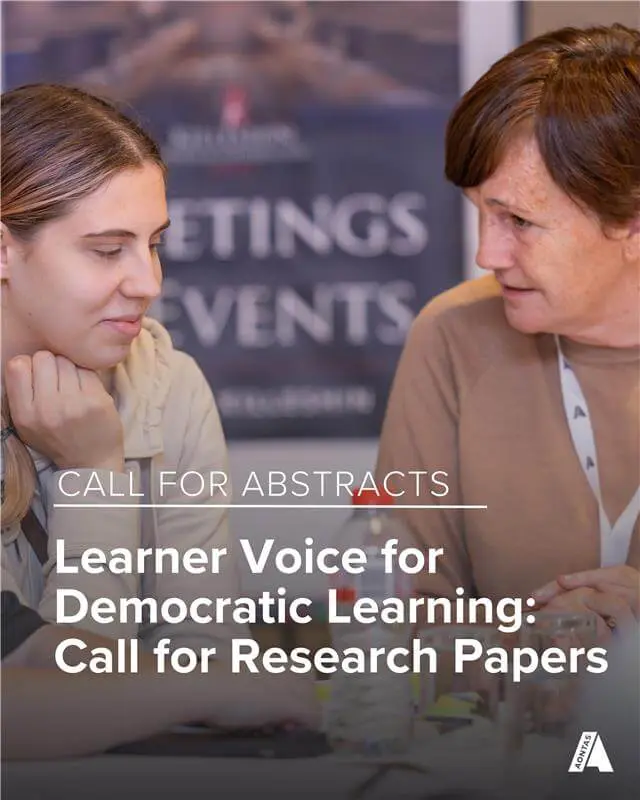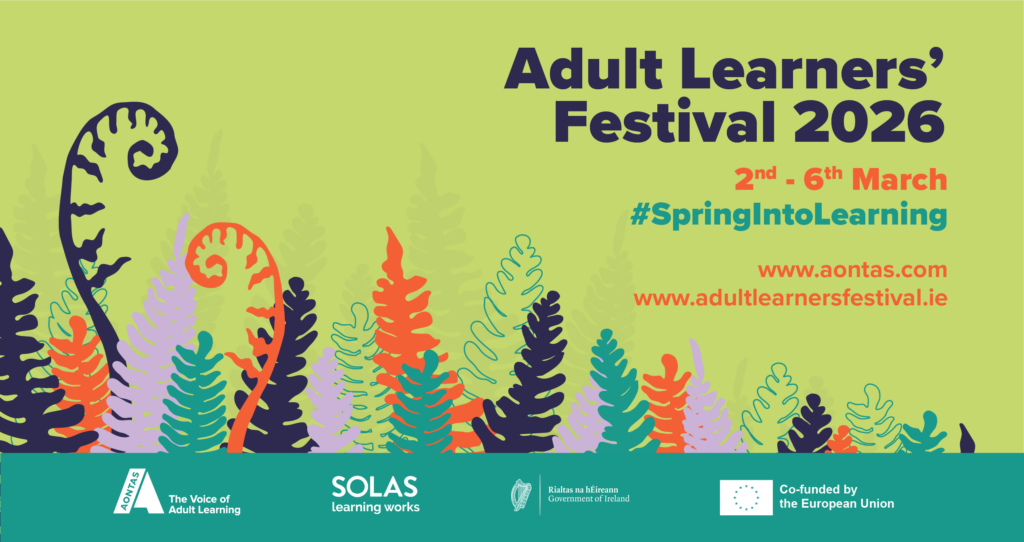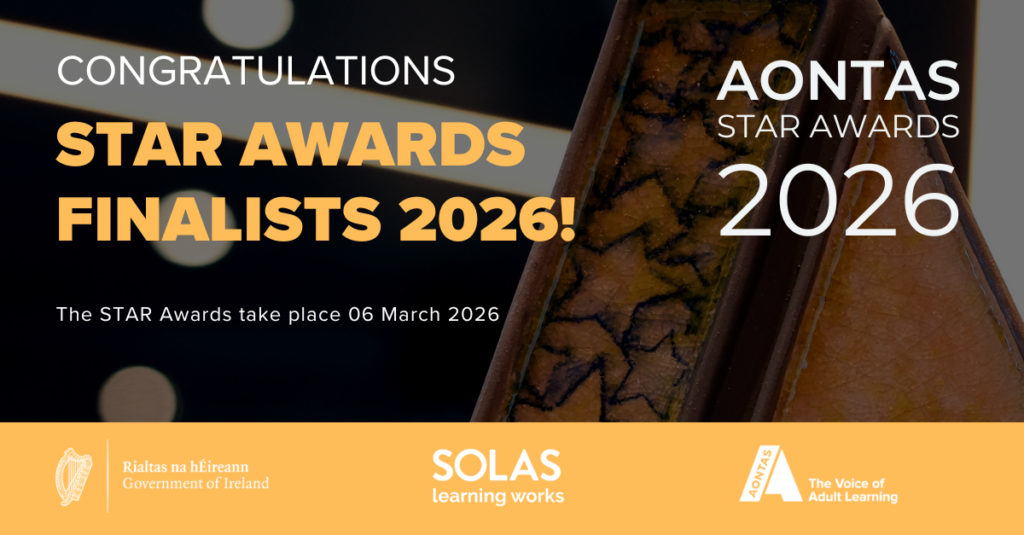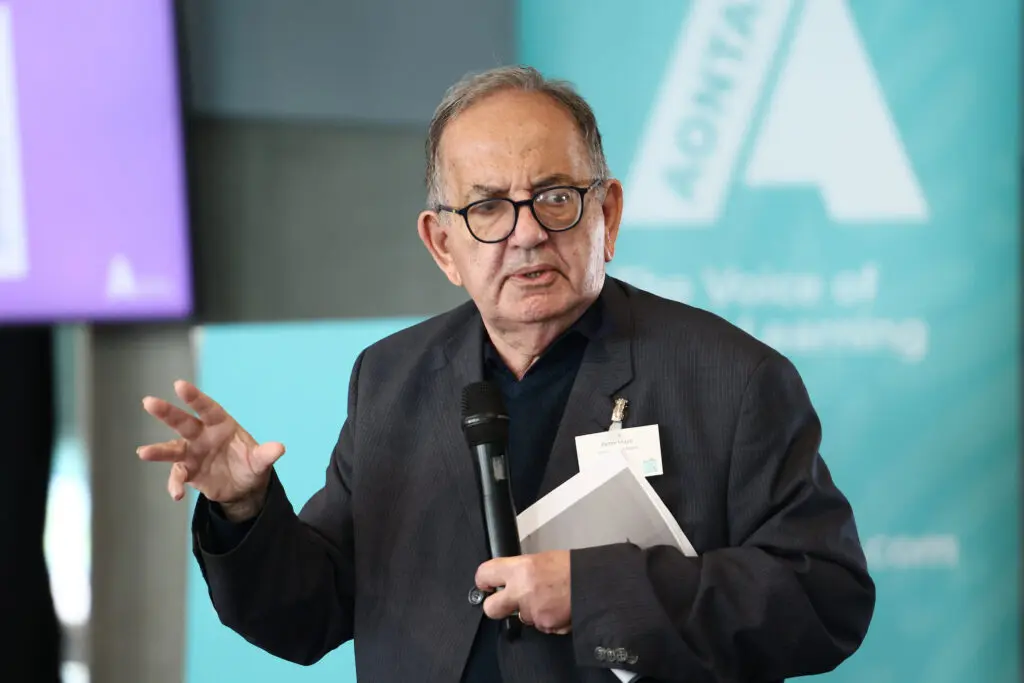In the wake of a global mobilisation of civil rights protests sparked by the murder of George Floyd and to mark this historical moment for the Black Lives Matter movement, AONTAS members came together for the 11th weekly Membership Webinar on 10th June to consider the role of adult education in combatting racism. Following the publication of a blog post by the UNESCO Institute for Lifelong Learning (UIL) in which AONTAS CEO Niamh O’Reilly and AONTAS Board member Joy-Tendai Kangere reflect on the role of adult education as a process for anti-racism, AONTAS invited Joy to facilitate our weekly webinar. Joy highlighted the historical connections between adult education and civil rights, but cautioned us not to believe that adult education is immune from racism and bias. As Joy’s moving talk illustrated, adult education has vast potential to contribute to anti-racism in a variety of ways, but there is still much work to do.
Introducing Joy, Niamh reflected on AONTAS’ obligation, as an organisation dedicated to equality and social justice, to respond to these pressing civil rights issues. She asked: what is AONTAS’ role in anti-racism and what is the role of adult education in anti-racism in Ireland?
Anti-racism, Joy argued, is “a movement against white privilege and the resulting biases that come with it,” whether these biases relate to a person’s accent, their background, or the knowledge level that is attributed to them. She discussed how Black people are often perceived to be less intelligent and competent in educational and employment settings because of their skin colour, names and accents, despite the educational level they may have attained. She also brought up the perception of Black people as violent, a racist stereotype which persists not only in the United States but in Ireland. Joy then discussed how ethnic minorities and people of colour are marginalised within the education system in Ireland, and drew parallels between the Black community and the Irish Traveller community, who “have been fighting for a long time to dispel biases about themselves, as an ethnic minority in Ireland.”
For a long time, Joy argued, adult education has been linked to social justice and the civil rights movement. Many people who go into adult education do so later in life and, as such, have had life experiences and have “a greater understanding of how the world works and our own privileges.” However, institutional racism is still embedded in organisational structures and teaching strategies. Joy emphasised how people of colour remain underrepresented as educators in Ireland, and how this has an impact on people of colour’s ability to connect with mentors who understand and share their experiences of racism and culture. As Joy stated, educators “should have a key role in anti-racism and preparing learners to encounter texts that present critical information in race relations.”
“There’s a lot of talk about diversity and inclusion… but people from ethnic minorities, Black children, they’ve gone through their whole school life without seeing someone that they look like.”
After illustrating how the education system in Ireland can perpetuate racism by excluding people of colour from curricula and teaching roles, Joy then focused on the potential for adult education to instead play a key role in the fight against racism in Ireland. One key area Joy highlighted was anti-racist research, which “questions the social structures that oppress people of colour and uses the knowledge gained to break down these structures.” Joy highlighted the need for expanding curricula, from early learning to secondary level through to higher education, to accommodate more of the writings and critical thought of people of colour, and pointed to UCD’s establishment of the first module of its type in Ireland, “Black Studies and Critical Race Perspective in Ireland,” as a welcome development. The turn away from Eurocentric approaches to knowledge in tertiary education will benefit society as a whole, Joy said.
“The whole of society would benefit from understanding African history, Caribbean history, Asian history.”
Joy also approached anti-racism from the perspective of learner voice, saying “Anti-racism is not only a job for adult education. We need to involve the learners, talk to them about what their needs are.”
Anti-racism in the classroom
Joy’s important and timely presentation prompted webinar participants to reflect on their experiences with racism as well as their personal roles and the roles of their educational groups or organisations in combatting racism. Participants reflected on Joy’s statement that anti-racism “is the work of everyone and we need to stand shoulder to shoulder in achieving this.”
“It is the work of everyone and we need to stand shoulder to shoulder in achieving this”
Community education tutors and practitioners expressed their concerns about the strong focus on upskilling, employment and economic value in current educational strategy not leaving enough room for the equally valuable social and moral change, specifically in the form of anti-racist teaching, that can take place in educational settings. There is concern among community education tutors that spaces of transformative learning and moral reflection are being squeezed out by a lack of funding, an explicit focus on education as skills and employment-based, and a cultural devaluation of community education.
Tutors of English as a Second Language who joined the discussion also noted how cuts to their programmes left less room for discussions on cross-cultural awareness and anti-racism. Courses which are heavily focused on gaining qualifications to prepare learners for the labour market may leave less time to focus on personal and social transformation, key benefits of adult learning which can contribute to the development of anti-racist mentalities and practices, participants felt.
Participants discussed their experiences of racism and of witnessing the impact of racism on learners. The discussions highlighted how racism negatively affects learners’ abilities to access the full breadth of an educational experience, and the challenges they face in accessing work experience placements and recognition of prior learning (RPL). Contributors pointed out how Black and Minority Ethnic learners find it more difficult to get work experience placements, for example, and how Black migrant and asylum seeker learners from African countries often struggle to have their prior qualifications recognised.
There was consensus among webinar participants that adult and community education can be effectively mobilised in the fight against racism in Ireland. However, contributors were unsure how or where to start with anti-racism in the classroom. Some participants expressed their interest in receiving training on how to teach anti-racism in the classroom. Members felt that educational materials needed to be updated to reflect a commitment to anti-racism and others welcomed opportunities to receive training from those with expertise in the areas of anti-racist teaching and activism. Many members communicated their desire and willingness to have their organisation participate in some kind of formal training around discussing issues of racism, white privilege, and anti-racism. Other members pointed out that, although classrooms are more becoming more diverse, community education teachers remain overwhelmingly white and some feel under-equipped to teach anti-racist critical thought and activism. Community education practitioners also cautioned against conflating multiculturalism and diverse classrooms with anti-racism.
When moving to close the webinar, AONTAS EU Projects Officer Dearbháil Lawless concluded, “It is not enough to be neutral or multicultural. We must practice anti-racism and include diverse voices and learning material.”
You can view the recording of this webinar on AONTAS’ below and on AONTAS’ YouTube page.
_________________________________________________________________________
In order to effectively and comprehensively feed the issues learners and members are currently facing AONTAS relies on your support and input to continue its work with, for and on behalf of the sector (Registration for the upcoming webinars is available on our Events page.
If you are an AONTAS member and can contribute to the weekly online gathering with your experience, suggestions and solutions to the common challenges facing the sector then please get in touch via email: bdolan@aontas.com or call 087 114 9278.

